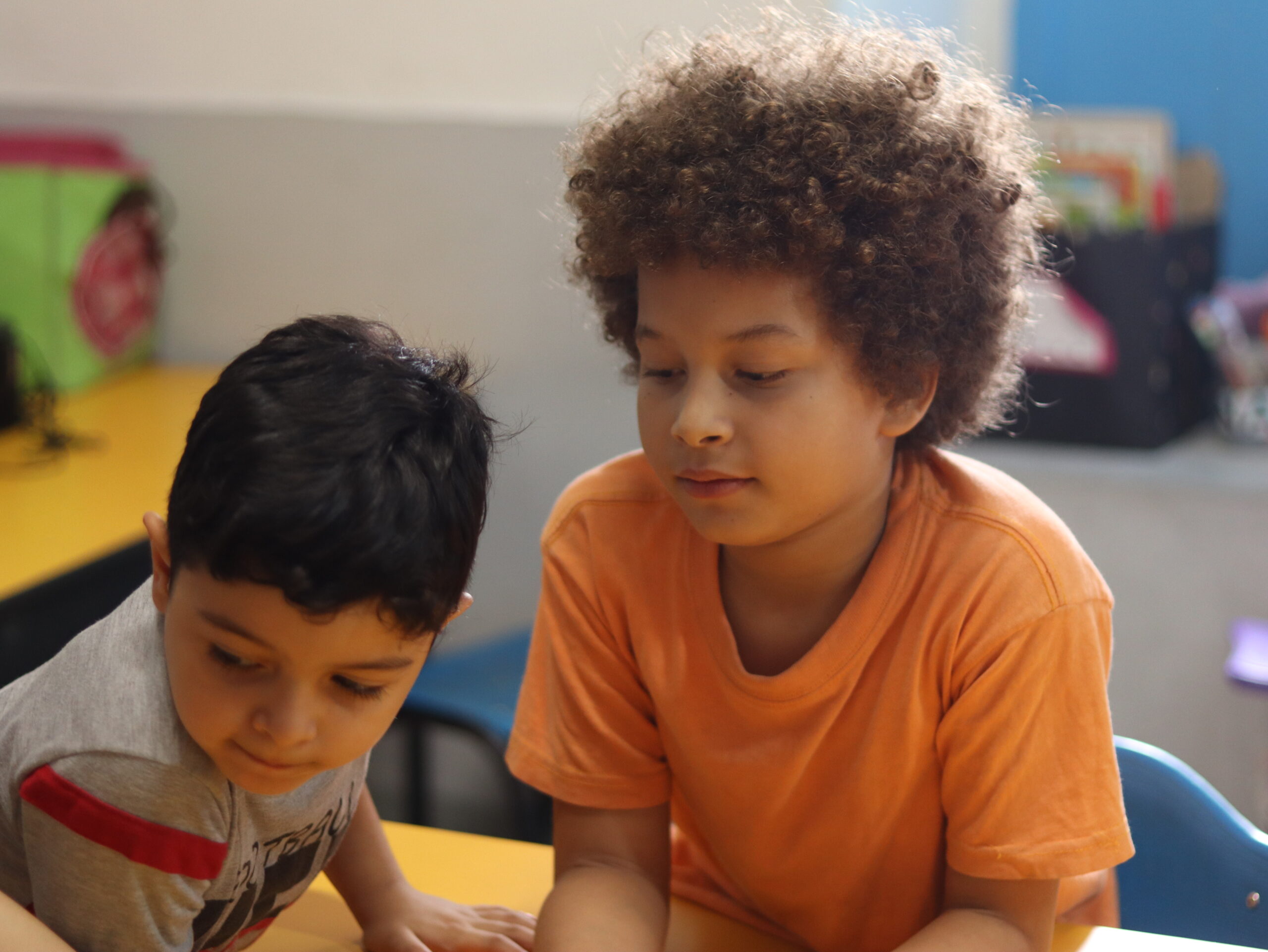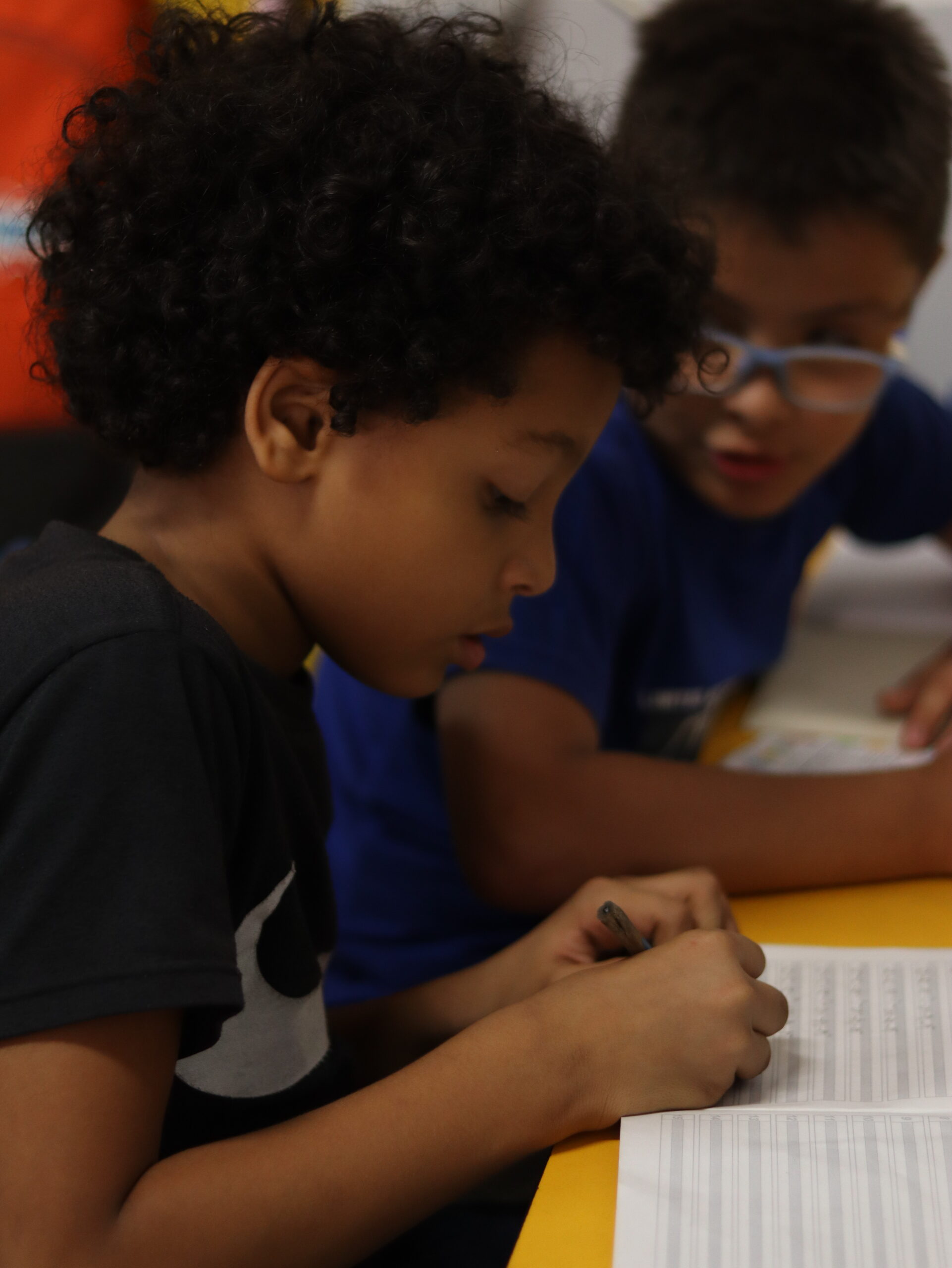A grandmother’s struggles
Imagine this.
You are a grandmother struggling to take care of yourself. Every day you go out into the streets, making a pittance by selling candy to strangers on the street. You make only enough to cover the cost of shelter for the night, and with the tiny bit of money left, you buy yourself a single arepo or a scoop of rice. There is no money for additional food. Some days there is not even enough extra to buy that much.
You have no job. No education. No partner to help you.
Two young grandsons, Samuel and Mateo, little boys whose parents abandoned them, are now your responsibility.
What are you going to do?
Like thousands and thousands of other adults in Medellin, you must pick one of several bad options. You can lock your children up during the day while you work. You could let them roam the streets unsupervised. The third option is to have them to work alongside you.
Surely, if three people sell candy, there will be three times as much money? If Samuel and Mateo follow your example and walk up to passersby, offering their candy for a few coins, there will be more coins at the end of the day to pay for rent and food.
So you, a grandmother doing the best you can in a very bad situation, opt to put the children to work every day so you can give them shelter and food. You and the little boys go to the Metro station and peddle your candy to strangers under the railroad track.
Activities of poor children in Medellin
The plight of this grandmother and her two young grandsons is typical of the activities forced upon the poor children in Medellin.
Often, children don’t even have a grandmother to help them. Sometimes they are orphaned. Sometimes they are abandoned. Others are sold into the sex trade by people they know and trust. Many come from bad home situations or have suffered abuse there. One study suggested that 70% of kids working on the streets have been beaten at home and chose not to return.
But children must eat, and they can be very resourceful. Poor children in Medellin might beg, sell trinkets, or wash car windshields. Sometimes, they perform stunts or juggle to earn a few coins. They might pick through garbage to collect plastic and rubbish that they can sell. Worse yet, they believe the promises of gang members and drug dealers who offer them food and protection and are lured into a life of prostitution and addiction.
Alone, hungry, scared, and desperate, these poor children don’t worry about going to school. Without education and training, they are looped into the continual cycle of poverty passed down from generation to generation.
From Heartbreak to Hopeful: How Two Poor Children of Medellin Got a Chance
When a team member from Casa de Sueños noticed the grandmother and the boys hawking their candy every day, she talked to her about helping the boys get out of this cycle of poverty and improve their lives. The grandmother agreed to enroll them at Casa de Sueños. One of the conditions of enrollment is that Samuel and Mateo would attend public school.
Instead of these two young boys, aged 9 and 7, selling candy every day, Samuel and Mateo would come to Casa de Sueños, the premier foundation for poor children and abused young women in Medellin. There, they would receive two meals a day. Samuel and Mateo would learn English and get help with lessons they’d been given at school. The two brothers would receive counseling, and they’d be part of group activities and experiences that would enrich their lives and their understanding of the world.
Samuel and Mateo, two poor children in Medellin, would get a chance at fulfilling, productive lives. They’d thrive on the friendship, fellowship, food, and faith lessons exhibited at Casa de Sueños.

The hope of Samuel and Mateo
When Samuel and Mateo entered Casa de Sueños, they were extremely shy and afraid of the other children.
Neither boy could read. Neither boy could write.
Now, a year and three months later, both are learning and progressing quickly. They are not frightened of others anymore. No longer shy, both boys feel comfortable and safe, secure in their environment when they are at the foundation. While they are still the closest of brothers and often stick together, each brother is now comfortable on his own, surrounded by other children and the boundless compassion of the staff of Casa de Sueños.
The future looks bright for these brothers, thanks to the love of a grandmother – and one very special foundation – that gives hope to these two boys and the poor children in Medellin.
If you, too, like the idea of giving hope to others, donate to Casa de Suenos, so that the future can look brighter for many more children for many more years to come.


